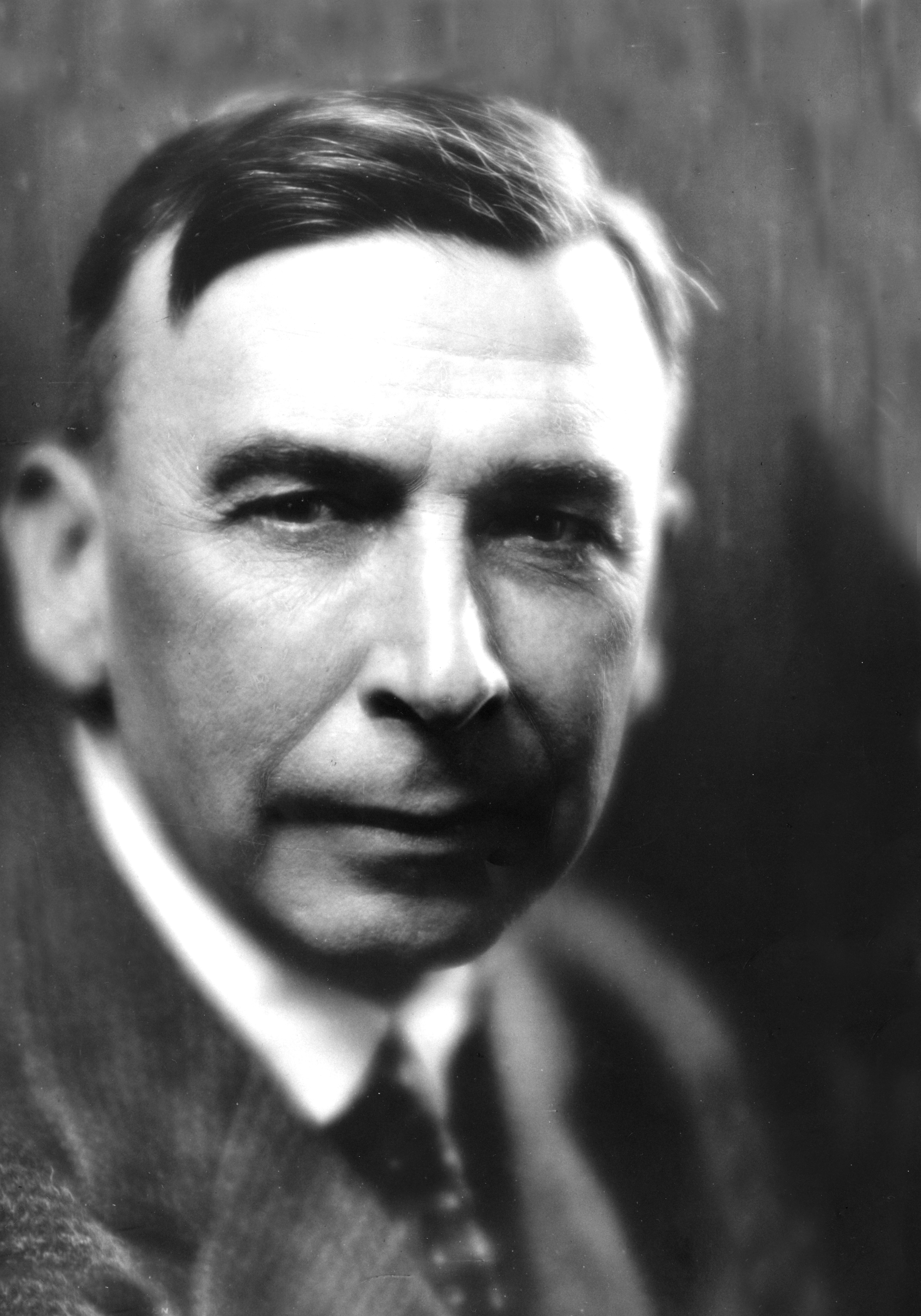Awards
- Honorary Degree - 1928
- LL.D.
- Doctor of Laws
- Commencement
- Bloomington, Indiana
- Presenter: William Lowe Bryan

Newton Booth Tarkington was a prolific and successful novelist. One of Indiana’s most accomplished and celebrated authors, both as a novelist and a playwright, he was one of only four authors to be awarded the Pulitzer Prize for Fiction twice. James Whitcomb Riley was a lifelong friend, influence, and inspiration to Tarkington, and they shared a passion not only for writing, but the Riley Memorial Hospital as well. Tarkington was one of twenty-one Incorporators for the James Whitcomb Riley Memorial Association. In that role, he spoke about why it was so important for people to give financial support to help build the hospital. In 1922, he wrote: “The Riley Memorial Hospital for children gives us that chance, and whosoever gives to it gives thrice: to himself, to the children, and to the memory of James Whitcomb Riley.”
Tarkington’s best-known works were written in the first two decades of the 20th century with his fiction reflecting an appreciation of his native Indiana. He is recognized along with Meredith Nicholson, George Ade, and James Whitcomb Riley in helping to create a Golden Age of literature in Indiana. From 1914 to 1928, seven of his novels ranked among the top ten best-selling books of the year. Two of his novels, "Penrod" and "Seventeen", enjoyed longer-term commercial success. Tarkington won the Pulitzer Prize for Fiction in 1919 for his novel, "The Magnificent Ambersons" and in 1922 for his novel, "Alice Adams". In addition, he also wrote 25 plays; some dramatized his novels, some were translated into film. The Booth Tarkington Civic Theatre in Carmel, Indiana, is named in tribute to Tarkington’s contributions to the theatre.
Tarkington received many honors and awards during his lifetime, including the American Academy of Arts and Letters (Gold Medal, 1933) and the Theodore Roosevelt Memorial Medal for Literature in 1942. He received numerous academic recognitions as well, including honorary degrees from Princeton University (1899), Columbia University (1924), DePauw University (1923), Indiana University (1928), and Purdue University (1939). Tarkington Hall at Purdue University is named in his honor.